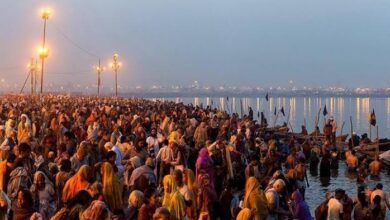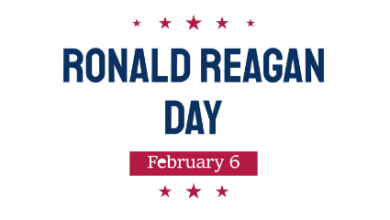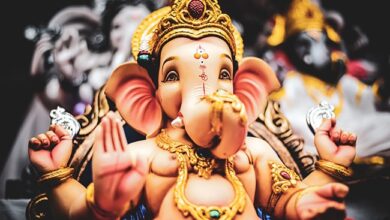Step into the rich history of Grenada as it marks Independence Day. Explore the unique traditions, cuisine, and celebrations that make this day unforgettable in the Caribbean.
Related:
Quick Facts:
- Date: February 7
- Main Components: Parades, ceremonies, cultural performances, fireworks
- Popularity: High among Grenadians and tourists
- Pairings: National flag, national anthem, national dish, national flower
- Variations: None
Introduction
Independence Day in Grenada is a public holiday that celebrates the end of British colonial rule and the birth of a sovereign nation. It is observed every year on February 7, the anniversary of Grenada’s independence from the United Kingdom in 1974. Independence Day is also known as Grenada’s National Day, as it marks the most important milestone in the country’s history and identity. On this day, Grenadians express their patriotism and pride by participating in various events and activities, such as parades, ceremonies, cultural performances, and fireworks. Independence Day is also a time to reflect on the struggles and achievements of the past and to look forward to the future with hope and optimism.
History of Independence Day
Pre-colonial era
Grenada is an island country in the Caribbean Sea, located in the southernmost part of the Lesser Antilles. The original inhabitants of Grenada were the Arawak and Carib peoples, who called the island Camerhogne. The first European to visit Grenada was Christopher Columbus in 1498, who named it Concepción. However, he did not establish a colony there.
Colonial era
Grenada was colonized by several European powers, including France, Britain, and Spain, who competed for control of the island and its lucrative sugar production. The first permanent settlement was established by the French in 1650, who renamed the island Grenade. The French faced resistance from the Caribs, who staged several rebellions and massacres against the colonizers. In 1762, Grenada was captured by Britain during the Seven Years’ War and ceded to them by the Treaty of Paris in 1763. Grenada became part of the British Windward Islands colony in 1877 and remained under British rule until 1974.
Independence era
The first political party in Grenada was the Grenada National Party (GNP), founded by Herbert A. Blaize in 1957. The GNP advocated for autonomy and self-government within the British Commonwealth. The main opposition party was the Grenada United Labour Party (GULP), founded by Eric Gairy in 1958. Gairy was a charismatic trade unionist and populist leader who appealed to the masses with his promises of social and economic reforms. In 1967, Grenada became an associated state of Britain, with full internal self-government but still under British control of foreign affairs and defense. Gairy became the first premier of Grenada and later the first prime minister when Grenada achieved full independence on February 7, 1974.
Related: Sami National Day In Finland 2023
Revolution era
Gairy’s rule was marked by corruption, authoritarianism, and human rights violations. He faced growing opposition from various movements, such as the Marxist–Leninist New Jewel Movement (NJM), led by Maurice Bishop. The NJM staged a coup d’état on March 13, 1979, overthrowing Gairy and establishing the People’s Revolutionary Government (PRG). Bishop became the prime minister and implemented socialist policies, such as land reform, free health care and education, and nationalization of industries. He also forged close ties with Cuba and Fidel Castro, who provided military and economic aid to Grenada. The PRG faced internal divisions and dissent from some members, such as Bernard Coard, who challenged Bishop’s leadership and accused him of being too moderate. On October 19, 1983, Bishop was arrested and executed by a faction of the PRG led by Coard, sparking a popular uprising and a violent crackdown by the People’s Revolutionary Army (PRA).
Intervention era
The execution of Bishop and the instability in Grenada alarmed the United States and other Caribbean nations, who feared a communist takeover and a threat to their interests in the region. On October 25, 1983, a joint military force of about 7,000 troops from the United States and six other Caribbean countries invaded Grenada in Operation Urgent Fury. The invasion met with minimal resistance from the PRA and resulted in the capture or death of most of the coup leaders. The invasion was condemned by many countries as a violation of international law and sovereignty, but was welcomed by many Grenadians as a liberation from tyranny. The invasion also restored constitutional order and democracy in Grenada, with Paul Scoon as the governor-general appointed by Queen Elizabeth II as the head of state.
Current Affairs of Grenada
Political system
Grenada is a parliamentary democracy within the Commonwealth of Nations, with Queen Elizabeth II as the head of state represented by a governor-general. The executive power is exercised by the prime minister and the cabinet, who are appointed by the governor-general from among the members of parliament. The legislative power is vested in a bicameral parliament consisting of a 15-member elected House of Representatives and a 13-member appointed Senate. The judicial power is independent of the executive and legislative branches and consists of a Supreme Court and a Court of Appeal.
Political parties
The current ruling party is the New National Party (NNP), led by Keith Mitchell, who has been the prime minister since 2013. The NNP is a center-right party that advocates for free market policies, foreign investment, and tourism development. The main opposition party is the National Democratic Congress (NDC), led by Tillman Thomas, who was the prime minister from 2008 to 2013. The NDC is a center-left party that supports social justice, environmental protection, and regional integration. Other minor parties include the Democratic Labour Party (DLP), the People’s Labour Movement (PLM), and the Grenada Progressive Movement (GPM).
Economic situation
Grenada’s economy is based on tourism, agriculture, and services. Tourism is the main source of foreign exchange and employment, accounting for about 25 percent of the gross domestic product (GDP) and 50 percent of the labor force. Agriculture is the second largest sector, producing mainly nutmeg, cocoa, bananas, and other fruits and vegetables. Services include banking, education, health, and public administration. Grenada’s economy has faced several challenges in recent years, such as the impact of natural disasters, such as Hurricane Ivan in 2004, which caused widespread damage to infrastructure and crops. Grenada also suffered from the global economic downturn in 2008 and 2009, which reduced tourism arrivals and revenues. Grenada also experienced a financial scandal in 2009, when the First International Bank of Grenada (FIBG), an offshore bank that operated in Grenada, collapsed due to fraud and money laundering allegations. The FIBG scandal affected thousands of depositors who lost their money and damaged Grenada’s reputation as a financial center. Grenada has been implementing economic reforms and recovery programs with the assistance of international organizations, such as the International Monetary Fund (IMF) and the World Bank. In 2014, Grenada reached an agreement with the IMF to receive a three-year Extended Credit Facility (ECF) of about $21.9 million to support its fiscal and structural reforms. In 2017, Grenada successfully completed its ECF program and achieved positive economic growth, fiscal surplus, debt reduction, and improved social indicators.
Related: Ronald Reagan Day In United States 2023
International relations
Grenada maintains diplomatic relations with many countries around the world, especially within the Caribbean Community (CARICOM) and the Organization of American States (OAS). Grenada also has close ties with the United States, which is its main trading partner and donor of aid and security cooperation. Grenada also has friendly relations with Cuba, which provides medical and educational assistance to Grenada. Grenada also participates in various regional and international organizations and initiatives, such as the United Nations (UN), the Commonwealth of Nations, the Non-Aligned Movement (NAM), and the Alliance of Small Island States (AOSIS). Grenada also supports various causes and issues of global concern, such as human rights, democracy, peacekeeping, climate change, and sustainable development.
Current issues
Some of the current issues facing Grenada include:
- The COVID-19 pandemic, which has affected its health system and economy.
- The FATF blacklists, which have placed Grenada on its list of jurisdictions with strategic deficiencies in their anti-money-laundering laws and regulations.
- The Resteiner case, which involves a lawsuit filed by Eric Resteiner, a German entrepreneur who claims that he paid bribes to Keith Mitchell in exchange for a diplomatic passport and a trade ambassador position in 2000.
- The Truth and Reconciliation Commission (TRC), which was established in 2001 to investigate the human rights violations committed during the PRG era and to promote healing and reconciliation among the victims and perpetrators.
Conclusion
Independence Day in Grenada is a significant occasion that commemorates the country’s freedom from colonialism and celebrates its national identity. It is a day of joy and gratitude for all Grenadians who cherish their history, culture, and achievements. It is also a day of hope and aspiration for all Grenadians who strive for peace, prosperity, and progress. Independence Day in Grenada is a reminder of the values and principles that guide the country’s development and democracy. It is also an opportunity to strengthen the bonds of unity and solidarity among all Grenadians who share a common vision for their future.



